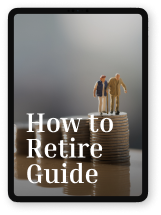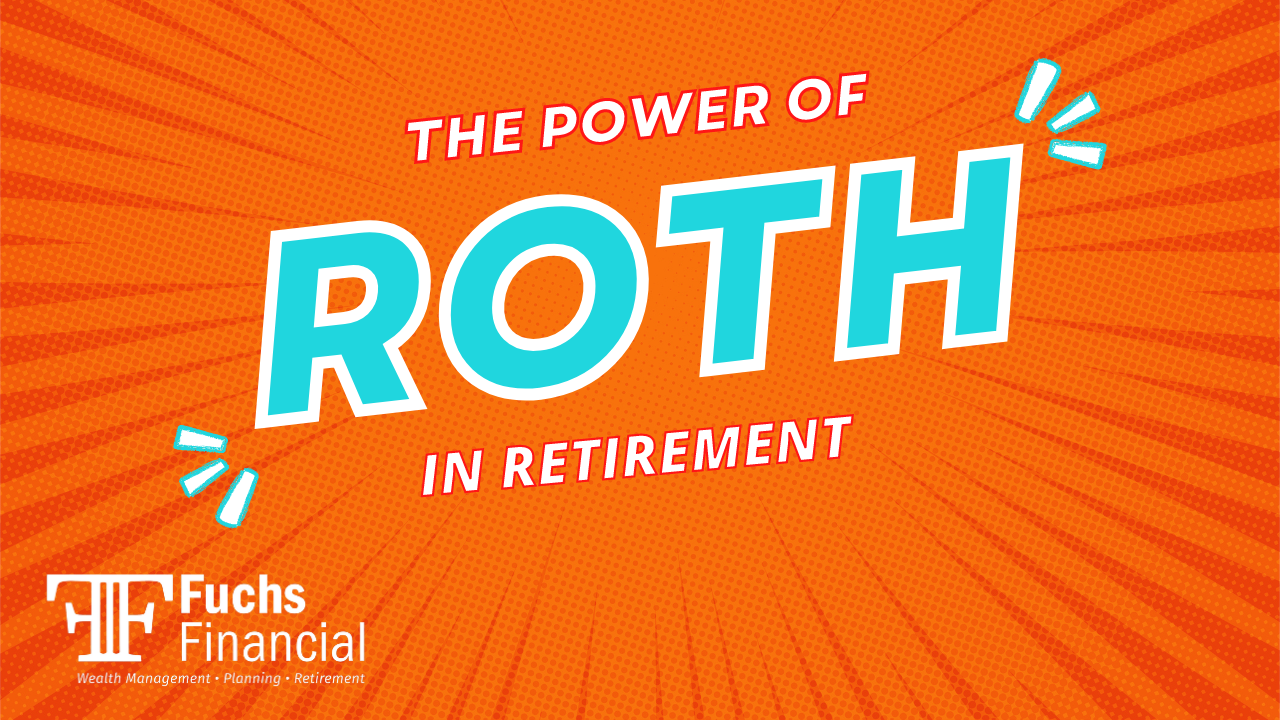Retirement comes at different times for nearly everyone. It is highly dependent upon the savings of an individual and how those savings have been managed. People often wonder “when is the right time to retire?” or “how do I ensure that I have enough money for retirement?”
The answer is different for everyone. For example, some individuals want to be able to travel the world, while others may be concerned with conserving assets to pass down to the next generation.
This article will be answering a question that many people are asking today, “can I retire at the age of 60 with $1.5 million saved?” The answer is- probably, but there are a lot of different factors to consider.
Introduction to retirement
The definition of retirement can vary drastically from person to person. For some, it means stepping away from the type of work they’ve been doing for the last several decades and starting a part time job that fulfills them. For others it means never working again, laying on the beach, Mai Tai in hand.
Many people will be making the change in title from corporate executive to full-time daycare director for their grandchildren. The formal definition of retirement is the action or fact of leaving one’s job and ceasing to work. Each person’s views and goals on retirement are unique and require differing levels of income and preparedness.
What is semi-retirement?
Semi-retirement is a term used to describe a time in an individual’s life in which they begin to reduce their workload but don’t fully retire.
Semi-retirement is popular for several reasons as it allows individuals to supplement their income in retirement, enjoy more flexibility in their working schedule, and continue to work toward something. If an individual is near retirement age but does not have enough money to be able to leave their career behind, this method is a great option to be able to enjoy time during this period of their life while still earning an income.
Many retiree-aged employees have extensive knowledge in their respective industries and are thus able to begin consulting work, which many times means becoming self-employed. This allows people to be able to choose their desired number of hours that they work and set their own schedule, granting them the ability to travel and spend time with family and friends.
Though consulting is one route to take for semi-retirement, it can also take place in the form of remaining in a current role and reducing the number of hours and/or days worked. An individual may begin by only working 4 days a week instead of 5 and graduate to a schedule of only 2 working days a week as time goes on.
Outside of financial concerns, many people choose to semi-retire because it still gives them a sense of fulfillment into their elderly years. It is a great way to stay busy and sharp during retirement.
Can you retire early or not?
This can be a tricky question to answer for several reasons, with the main one being- what is considered “early?” People tend to have drastically different definitions of early retirement dependent upon their lifestyle choices and spending habits.
For some, retiring early means doing so in their 30s or 40s. These people tend to follow the FIRE method for retirement, otherwise known as Financial Independence Retire Early. This is a method of living that requires high levels of saving, frugality, and minimalism. Individuals looking for extremely early retirement may live at home with their parents or in less-than-desired situations and drive the cheapest car available in order to reach their yearly savings goals. While the FIRE method has continued to gain support since the 1990’s, most people looking to retire early are looking to do so in their late 40s, 50s, or early 60s at latest.
A few other key considerations to take in account when thinking about early retirement are determining the lifestyle in which you want to live, where you want to live, if you have goals to pass on your estate, and if you anticipate a future need for extensive medical care. The medical care component is often hard to determine, but can be assessed based off of familial medical history.
Lifestyle in retirement is highly determinant on the age in which a person may retire comfortably. For example, if an individual is able to save $3 million by the time they are 35 and they choose to retire, they may not be able to take lavish vacations and own several properties for personal use, as this will deplete their savings heavily and they could run out of money later on. Using the same logic, a person may only have $1 million saved and retire at the age of 65, but working within a specific plan still accomplish all of their vacation goals without running out of money.
For an individual that is only semi-retiring, the state in which this person resides may have a huge impact on their savings and lifestyle. A person living in California will be paying far more in taxes than a person who resides in Florida, but there are good reasons to live in either state.
How to retire safely at 60 with $1.5 Million
The following are several important steps and factors to consider in order to be ready to retire at the age of 60 with $1.5 million saved.
Forming a bridge account
Traditional retirement accounts are excellent choices to be able to finance retirement for individuals, but there is one glaring issue for those looking to retire early. With very few exceptions, a person is not able to pull money from their IRA, Roth IRA, 401(k), or 403(b) before the age of 59.5 without incurring a 10% penalty. This means that an individual whose goal is to retire at 48 may have to go 10+ years without the funds that they have worked so hard to save. This is where a bridge account can help.
A bridge account, otherwise known as a gap account, is an after-tax investment account in which you can deposit funds directly from your retirement account without paying a penalty as long as they are in equal installments and for at least 5 years. This can help cover living costs while retired before the age of 59.5.
One other method that can be used to withdraw funds from a retirement account early without penalty is the rule of 55. This is a policy that allows individuals to begin taking money from their employer-sponsored retirement accounts starting at age 55 without the 10% penalty from the IRS. This rule only applies to a person’s current employer, so if they get a new job, they may no longer be eligible to withdraw the funds they previously were.
Roth Conversion Ladders
The process of a Roth IRA conversion ladder can help people tap into their retirement accounts before the age of 59.5 without the 10% penalty from the IRS. Unlike a standard Roth conversion which entails a singular transfer, a conversion ladder takes place multiple times over several years. The conversions are performed by taking money from a tax-advantaged retirement account, such as a 401(k) and moving it into a Roth IRA. As long as you are working with a professional that is overseeing the process, it should be relatively simple to convert funds.
This is an area that Fuchs Financial focuses on with clients during their bi-annual reviews in order to come up with hand-crafted solutions. The difficulty in the process lies within the fact that you can withdraw Roth contributions whenever you would like tax-free, but Roth conversions have an IRS-mandated 5 year waiting period until the funds can be withdrawn.
In order to circumnavigate the 10% fee associated with early withdrawal, an individual can begin to convert their retirement money into a Roth annually. If done properly, this will allow an individual to begin to take tax-free withdrawals 5 years after the start of their conversions. Thus, if a person starts converting funds at 45, they may begin to take out and use these funds consistently starting when they are 50. But there are limitations to the withdrawals, you may only take out the original money you contributed. Any gains from the account cannot be taken out until 59.5 to avoid penalties and taxes.
This is yet another way to bridge the gap between early retirement and age limits associated with retirement account fund distributions. It should be noted that taking on this process without a professional can lead to paying significantly more in taxes.
Optimizing Saving Vs. Spending
People often prioritize saving during their working life and allow retirement to be a time in which they spend money liberally. Although this is the typical model, saving must be incorporated into a person’s lifestyle from the start of their career if early retirement is their goal. This means having less discretionary funds to spend on everyday living expenses such as dining and entertainment, and putting more money into a wide range of investment vehicles such as stocks, bonds, savings accounts, and real estate.
Early optimization of saving will allow people looking to retire young to live desirable lifestyles rather than ones filled with limited activity and restricted budgets.
Although retirement is a time for enjoying the fruits of one’s labor, it can also be time to begin to think ahead to what your ultimate goals are for your family. If you have a spouse or partner, they or you may need services such as assisted living or other medical care later on if life that can be highly expensive. Children also bring about lots of expenses, which we will touch on later in this article. There is also a desire for some people to pass on money or assets to the next generation. All of these factors must be taken into consideration when thinking about lifestyle choices long before and during retirement.
Biggest Expenses You Should Think About When Starting to Save More
Though most items on this list may seem obvious, they are important to note in order to get an idea about which expenses can drain savings the most before retirement even starts:
- Housing – This is the number one monthly expense for Americans and fluctuation in the housing and rental markets continue to make it difficult to adequately plan for this expense in the future.
- Transportation – The second largest expense for Americans each month, this encompasses the purchase price of a car, monthly payments, insurance, gas, and repairs. Public transit can help take away a lot of the money going towards this category.
- Healthcare – This is a massive expense for Americans, even for those with a great healthcare plan. People must cover insurance premiums, copays, deductibles, and medical supplies, which can add up quickly.
- Groceries – With inflation, Americans have seen a huge impact on the cost of goods in grocery stores. The cost of groceries only grows with each added member of a family; thus, this expense should be carefully budgeted monthly.
- Entertainment – Though it is nice to enjoy your time outside of work, entertainment is a mostly discretionary expense that can really take a toll on a monthly budget.
- Restaurants & Prepared Meals – Going out to eat and eating meals away from home can deplete savings in a major way if these expenses are not properly budgeted into monthly expenses. If going on a strict budget, preparing meals from home is the best option.
Don’t forget about inflation losses
Inflation losses are important to understand as this affects a consumer’s buying power in a significant way. Savings accounts and almost all money in the bank grows at a rate of about 0.5% annually, while the inflation rate in August 2022 is around 8.3%. This means that if an individual keeps $50,000 in the bank, inflation will erode your buying power, so this is something that we at Fuchs Financial recommend you take steps to fix.
To use a real-world example – imagine someone is in the market to buy a new Toyota Corolla in 2019 vs in 2022. In both instances this person puts $20,000 in their savings account the year before the purchase in order to safeguard it for buying the vehicle. In 2019, a Toyota Corolla L base model retailed for $19,600. Therefore, this person would easily be able to buy the car with the $20,100 that they have in the bank after they received their 0.5% annual interest on their initial deposit. In 2022, this same person would have to pay $21,450 for the exact same model of car. Therefore the $20,100 that they have in the bank after interest is added will not be enough to purchase the car. This particular car model had a price inflation of 9.4% over the past 3 years and this will impact the purchase power of consumers whose funds are not growing with the inflation rate.
Additionally, we cannot predict the future rate of inflation.
Can I retire at 60 and get social security?
Social Security is a system that people have paid into their entire lives and reaping the benefits can help supplement retirement income. With that being said, the problem that early-retirees face is that they cannot collect payments from Social Security until they turn 62 years old, with very few exceptions.
In order to obtain higher payment amounts from the system, people must hold off on collection past the age of 62, with each year they delay leading to larger sums of money they will receive. This is where the importance of bridge accounts and Roth conversions come into play, as this can allow people to supplement their income in the early years of retirement without the help from Social Security.
The one main exception to collecting Social Security early is if you are a widow. In the case of your spouse passing, an individual can begin to collect a survivor’s benefit starting at age 60.
How much Social Security will you get if you retire at 60?
As previously discussed, Social Security cannot be collected until age 62. Delaying payments will also increase the money you are paid by 8% each year once you reach Full Retirement Age (FRA), which currently is 66.5 but soon to be 67. This means that if a person waits until they are 70, they can increase their benefits well over 16-24%.
Keep in mind that Social Security payments are based on a person’s 35 highest earning years, thus early retirement may impact the size of payments due to the fact that people normally earn more at the end of their career.
How much does a married couple need to retire at 60?
The two biggest factors that we use to determine when a couple can retire are:
- What is the couple’s monthly spending?
- What is the current and projected return on their portfolio?
This is where a wealth manager becomes extremely useful because they can project and plan for different scenarios and give advice on where assets and other money should be held. If a couple has had previous success in a variety of investment methods and continue on this route while living a relatively frugal lifestyle, they will need significantly less in their accounts than someone without diversified investments and a proper plan.
How children play into the early retirement equation
Ben says they mess up the whole picture… but they are probably worth it. Children have a major role in people’s ability to retire early and, moreover, what age they can do so.
For all the joy that they bring, children can also create massive expenses that can seriously hinder plans of early retirement. There are expenses that are non-negotiable from the start of a child’s life that will take away from savings that would otherwise be put into various investment vehicles.
Food and housing are the two largest expenses that parents must incur, but there are also major costs associated with child care, health care, modes of transportation, and clothing, among many others. Along with expenses that are unavoidable, there are choices that parents must make for different life events that could substantially drive up the cost of having children. For example, if you want to send your child to college, pay for their wedding, or help them out to become a homeowner, you may be setting back your date for early retirement.
All of these factors must be considered when determining your target retirement age and how you plan to spend your time and money.
How to incorporate proper estate planning with an early retirement
Estate planning is the process of managing and arranging the disbursement of an individual’s estate following incapacitation or death. Proper estate planning steps can be found here, in the section titled What is a Wealth Manager? Meeting with a wealth manager can aide in this process significantly, especially when looking to protect assets for future generations while looking to retire early. This process will take place a lot earlier in an individual’s life if they are looking to cease work at a young age, as this is a key consideration for lifestyle choices while in retirement.
If maintaining generational or new-found wealth is the goal of an individual looking to retire early, then their plan and the way in which their accounts are set up will have a significant impact on how much money their kin will receive. It is important to enjoy retirement, but it is equally important to realize the goals and individual has for oneself and adjust their lifestyle to reflect those goals.
5 Tips and Advice to Follow for an Early Retirement
- Talk to people who disagree with your savings and retirement strategies.
- This will help you find weak points in your plan and fix them. It seems like a very self-explanatory point, but it is often overlooked when making big decisions. People who think you are doing something wrong will provide valuable insights that can help you correct errors in the long-term.
- Do not fall under the false pretense that past portfolio performance is indicative of future success.
- Returns on investments, across a variety of fields, vary significantly over time. Just because something such as a certain stock index or venture capital endeavor has worked out well in the past does not mean that you will continue to see the same gains into perpetuity, thus, you should not rely on continued growth to fuel retirement.
- Make sure you have enough low-risk investments to through 3-5 years of a significant market downturn.
- While high-risk investments allow individuals to realize the greatest short-term gains, they can also become a major threat to people looking to retire early. If all of a person’s investments are held in options or futures, then a market downturn can set back a retirement date significantly. Some possible low-risk investments to consider for your portfolio could be; high-yield savings accounts, low-risk corporate bonds (typically from large corporations), and short-term certificates of deposit, among many others.
- Look for consistent income generators during retirement that have buffers from the stock market.
- The volatility of the stock market is evident. There are peaks and troughs in the market that can have a major impact on a portfolio if not properly managed. If you have enough money to begin seriously investing in retirement, you should consider things such as immediate annuities, which is a form of annuity that locks in certain payments for immediate disbursement and can never be changed, or laddered bonds, which involves purchasing multiple bonds that mature at different intervals.
- Understand your expenses.
- This encompasses so many different aspects of retirement, from housing to travel to medical care to insurance. It is key that people understand what their expenses will look like in the future to avoid the pitfalls of under budgeting retirement. Healthcare and insurance are two aspects that must be closely examined and should likely be budgeted following the worst-case-scenarios to ensure adequate planning.
Investment advisory services offered through Foundations Investment Advisors, LLC (“Foundations”), an SEC registered investment adviser. Ben Fuchs authors this commentary, which may include information and statistical data obtained from and/or prepared by third party sources that Foundations deems reliable but in no way does Foundations guarantee the accuracy or completeness. Foundations had no involvement in the content and did not make any revisions to such content. All such third-party information and statistical data contained herein is subject to change without notice and may not reflect the view or opinions of Foundations. Nothing herein constitutes legal, tax or investment advice or any recommendation that any security, portfolio of securities, or investment strategy is suitable for any specific person. Personal investment advice can only be rendered after the engagement of Foundations for services, execution of required documentation, including receipt of required disclosures. Any mention of a particular security and related performance data is not a recommendation to buy or sell that security. Foundations manages its clients’ accounts using a variety of investment techniques and strategies, which are not necessarily discussed in the commentary. All investments involve risk and past performance is no guarantee of future results. Advisory services are only offered to clients or prospective clients where Foundations and its advisors are properly licensed or exempted. For more information, please go to https://adviserinfo.sec.gov and search by our firm name or by our CRD # 175083. Rates and Guarantees provided by insurance products and annuities are subject to the financial strength of the issuing insurance company; not guaranteed by any bank or the FDIC.















